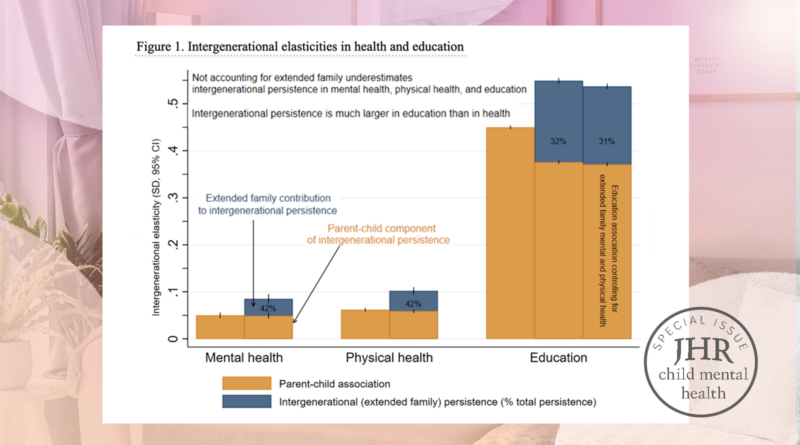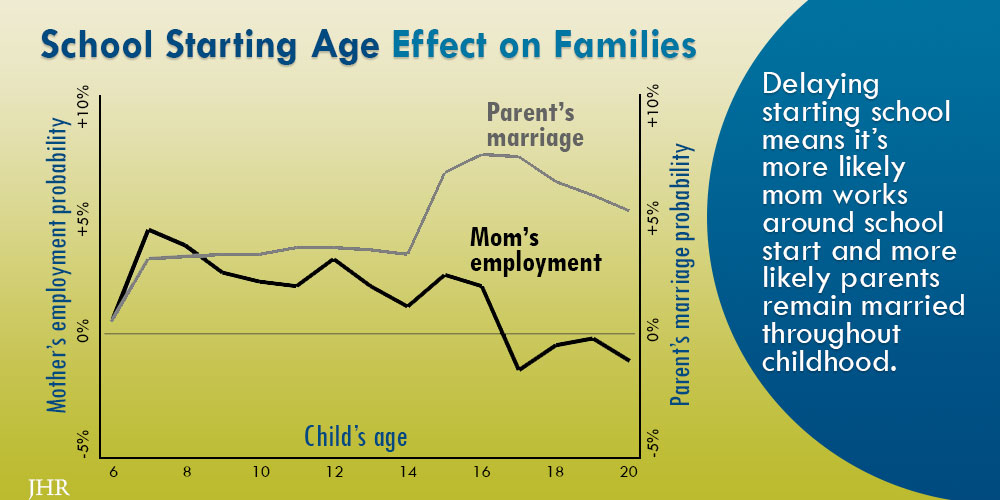Mental Health of Parents and Extended Family Influences Child’s Health
While recent research has focused on intergenerational persistence in education, income, and wealth, much less is known about how mental health is linked across generations. Policymakers wanting to address the health inequalities could thus benefit from understanding how they transmit within family.
Researchers Aline Bütikofer, Rita Ginja, Krzysztof Karbownik, and Fanny Landaud document that the mental health of parents and even extended family, such as aunts and uncles, matters for children’s mental health outcomes. They find that the persistence in mental health is much higher when the extended family is included—excluding the relatives from calculations underestimates the intergenerational persistence by about 40%. Quantitatively, the mental health associations are much smaller than those documented for education, income, or wealth. However, they are very similar to physical health correlations.
Taking a closer look at mental health, they additionally studied a policy that provided health resources for young children of adults diagnosed with mental health conditions. The policy reduced the parent–child mental health associations by 39 percent.
The policy was much more effective for children of college-educated parents compared to families where parents did not have a college degree. This difference implies that reductions of intergenerational persistence could be at the cost of increasing inequality within a generation.
This research shows not only that mental health could be determined by familial factors but also that relatively low-touch policies can alleviate the effects of this intergenerational transmission.
Read the article in the Journal of Human Resources: “(Breaking) Intergenerational Transmission of Mental Health” by Aline Bütikofer, Rita Ginja, Krzysztof Karbownik, and Fanny Landaud.
***
Krzysztof Karbownik is an assistant professor of economics at Emory University (@chriskarbownik). Aline Bütikofer is a professor of economics at Norwegian School of Economics (@AlineButikofer). Rita Ginja is a professor of economics at University of Bergen (@RitaGinja). Fanny Landaud is a CNRS researcher at CY Cergy Paris University (@FannyLandaud).




